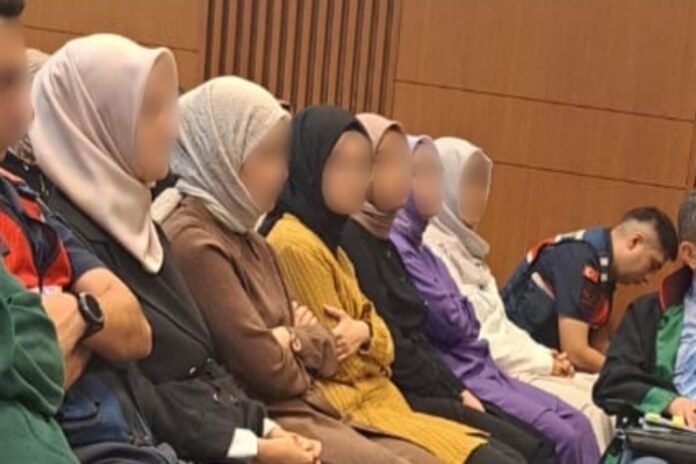A Turkish prosecutor has recommended prison sentences for all 41 defendants in the controversial “girls’ trial,” a terrorism case targeting minor girls and their mothers over routine religious and educational activities allegedly linked to the faith-based Gülen movement, observers told Turkish Minute.
During Friday’s hearing at the İstanbul 24th High Criminal Court, the prosecutor submitted his final opinion, seeking prison sentences ranging from six to 15 years for every defendant.
The charges include alleged membership in a terrorist organization based on activities such as attending Quran study circles, organizing tutoring sessions, celebrating birthdays and socializing in apartments claimed to be affiliated with the movement.
The prosecutor’s request appears to disregard the extensive objections raised by the defense throughout the year-long proceedings. Although the final opinion comprises several dozen pages, it was not read out in its entirety, the observers said, speaking on condition of anonymity. Instead, the prosecutor delivered a brief oral summary lasting only a few minutes, raising further concerns about the seriousness and procedural fairness of the trial.
The hearing was adjourned to allow the defense time to prepare their closing arguments. The next hearing has been scheduled for July 18 at 10:00 a.m., with a possible continuation on July 19 if necessary.
Turkish President Recep Tayyip Erdoğan has been targeting followers of the movement since corruption investigations revealed in 2013 implicated then-prime minister Erdoğan as well as some of his family members and inner circle.
Dismissing the investigations as a Gülenist coup and a conspiracy against his government, Erdoğan began to target the movement’s members. He designated the movement as a terrorist organization in May 2016 and intensified the crackdown on it following an abortive putsch in July of the same year that he accused Gülen of masterminding. The movement strongly denies involvement in the coup attempt or any terrorist activity.
The girl’s trial involves 41 defendants, including 14 teenage girls, accused of having links to the movement. The girls were detained in May 2024 without access to lawyers or their parents and were reportedly threatened while in police custody.
Prosecutors argued that the defendants’ ordinary activities such as attending Quran study groups, praying, organizing tutoring sessions, going bowling and having meals together indicate membership in a terrorist organization, citing more than 100 such “terrorist acts” in the indictment.
The court accepted the indictment on July 8, 2024.
The trial has drawn international criticism for treating routine religious and educational activities as evidence of terrorism and is part of a broader crackdown on people accused of ties to the Gülen movement.
Human rights groups have repeatedly criticized Turkey’s counterterrorism laws for their vague definitions and their use to target political dissidents, journalists and civil society members.















